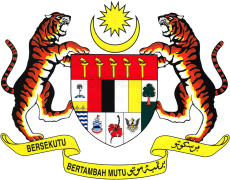What is the Framework Agreement on Economic, Commercial, Investment and Technical Cooperation (FAECITC)?
The Framework Agreement on Economic, Commercial, Investment and Technical Cooperation (FAECITC) is a bilateral agreement between Malaysia and the GCC group comprising six countries i.e. United Arab Emirates, Qatar, Oman, Saudi Arabia, Bahrain and Kuwait. The FAECITC is viewed as a step to further strengthen economic relations, improve business environment, increase bilateral trade through the removal or reduction of import duties and legal commitment expected from a Free Trade Agreement (FTA) with the GCC.
What is the scope of the Agreement?
The scope of the agreement covers:
- Economic and commercial cooperation;
- Investment;
- Technical cooperation; and
- Exchange of information and expertise.
What are the benefits that can be accrued by signing the FAECITC?
The signing of the FAECITC offers Malaysia several advantages. The GCC, with a total population of 38 million, with a Gross Domestic Product of USD863.64 billion in 2009 is an attractive market for Malaysian exports. Currently, Malaysia's exports to the GCC countries totaled USD5.0 billion (RM15.4 billion) for the period January-November 2010. Other advantages are:
- Providing more concrete business environment for investment and trade opportunities;
- Enhancing exchange of information on foreign trade;
- Encouraging business communication, particularly between institutions and organisations concerned with foreign trade;
- Facilitating training and technology transfer; and
- Providing avenue for both sides to take appropriate arrangements for encouraging capital flows between them.
When is the date of entry into force of this Agreement?
The FAECITC will come into force once the agreement is ratified by both parties.
What does Malaysia aspire to achieve out of this Agreement?
The Framework Agreement w ill facilitate the environment to expand trade relations between Malaysia and the GCC countries which include initiating discussions of a Free Trade Agreement. Malaysia is looking forward to commencing negotiations on a Free Trade Agreement with the GCC after signing of the Framework Agreement.
What areas would Malaysia benefit from the prospective FTA with the GCC?
For trade in goods, Malaysia's p otential exports to the GCC would include:
- Halal food and non-food products;
- building materials;
- electronic and electrical products;
- chemicals and chemical products;
- palm oil;
- machinery & equipment;
- transportation equipment;
- rubber products;
- wooden panels and wooden furniture; and
- petroleum products.
For trade in services and investment, the following are potential areas:
- Islamic finance;
- education;
- healthcare;
- facility management;
- ICT;
- telecommunications, power and water supply and services;
- infrastructure such as highways, bridges, airports and public amenities; and
- real estate construction and development.
Last Updated 2015-06-01 18:18:09 by Administrator
 |
| 











